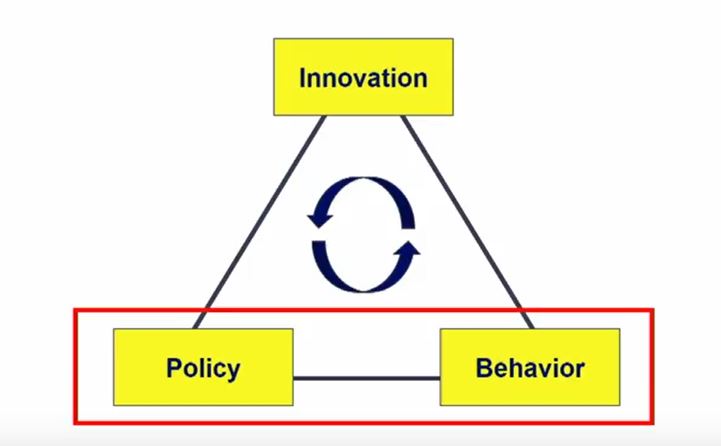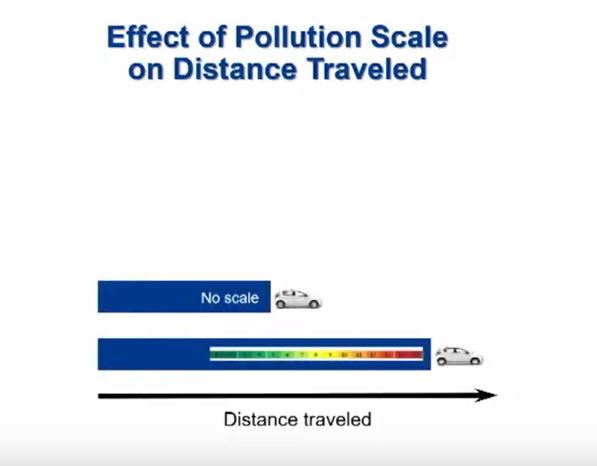What's that feeling when you think “I deserve this indulgence"? Licensing, a psychological behavior that affects our decision making. Dr. Stav Rosenzweig, senior lecturer in the Department of Management of the BGU Guilford Glazer Faculty of Business and Management presented the relevance of her research at the BGU Board of Governors BGU Talk session.
“Licensing is that moment when we throw away everything we believe in and license ourselves to indulge," explains Dr. Rosenzweig and used the example of choosing “that piece of triple fudge chocolate cake" after a workout, even though we cognitively know we're supposed to eat protein and salad. “This is when we unconsciously do something bad that we wouldn't do, unless we previously had done something good, or at least think we'd done something good," continues Dr. Rosenzweig, while presenting her academic research. Licensing behavior has been replicated in numerous studies, providing experiment participants with a choice between a low-calorie snack and a health-food, showing consistent results that “the mere availability of a good or a healthy option is enough to trigger licensing and to make the worst possible choice."
 These examples show how policies regarding regulating food packaging marketing to help consumers make the right decisions “to watch our weight, conserve water, save energy, and research can help policy-makers," Rosenzweig goes on to elucidate the reach of consumer behavior research, specifically her research on innovation, policy and behavior (triad at left), “not a lab experiment, but examining real world behavior."
These examples show how policies regarding regulating food packaging marketing to help consumers make the right decisions “to watch our weight, conserve water, save energy, and research can help policy-makers," Rosenzweig goes on to elucidate the reach of consumer behavior research, specifically her research on innovation, policy and behavior (triad at left), “not a lab experiment, but examining real world behavior."
Stav then went on to display her research with Dr. Ofir Rubin (GGFBM Department of Public Policy and Administration) and their doctoral student  Ms Aviv Steren about how eco-friendly car incentives have failed. Surprisingly and contrary to the marketing expectations, their research revealed that car buyers of eco-friendly cars, who had seen a car company's advertisement showing a pollution saving scale (pictured), drove 50 km more per month than car buyers who were not aware of the scale, accruing 600 km more per year, per driver. People who saw that pollution scale felt that their car was less of a pollutant, and licensed themselves to drive more. While the original marketing policy, “with a strong sense of public duty," was supposed to save energy, it caused the opposite outcome of more driving and thus more pollution. Those marketing policy makes did not have an understanding of basic human behavior, “that makes us behave in ways that are bad for us," Dr. Rosenzweig clarifies.
Ms Aviv Steren about how eco-friendly car incentives have failed. Surprisingly and contrary to the marketing expectations, their research revealed that car buyers of eco-friendly cars, who had seen a car company's advertisement showing a pollution saving scale (pictured), drove 50 km more per month than car buyers who were not aware of the scale, accruing 600 km more per year, per driver. People who saw that pollution scale felt that their car was less of a pollutant, and licensed themselves to drive more. While the original marketing policy, “with a strong sense of public duty," was supposed to save energy, it caused the opposite outcome of more driving and thus more pollution. Those marketing policy makes did not have an understanding of basic human behavior, “that makes us behave in ways that are bad for us," Dr. Rosenzweig clarifies.
FULL VIDEO: Dr. Stav Rosenzweig captivates the BGU Board of Governors with a glimpse into her research
“Once we really understand human behavior, we can design better, more responsible and more innovative policies that can benefit ourselves and our society," concludes Dr. Rosenzweig.
related marketing research: Does looking at images of super-models lead to under-eating or over-eating? Marketing Research Study: Fashion Models and the Overweight Epidemic
